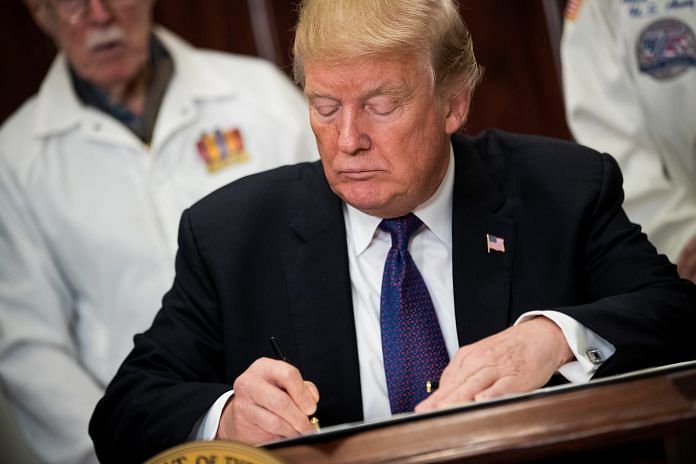Amid widespread alienation of former allies, Trump Administration’s outreach to India and Japan is vital.
Unless the US infuses some strategic vision into its current foreign policy, it runs the risk of being marginalised in the rapid power shifts that are taking place across the globe.
This is what Nicholas Burns, a former top US diplomat and current professor at the Harvard Kennedy School, said this month. He reminded the audience that Pearl Harbour shook the US out of its isolationist hubris and pitchforked it on a journey that has seen it emerge as the undisputed power on the globe, a status that it must not abdicate.
Indicating a growing frustration with US inactivity on the global scene, he argued that while President Donald Trump seems to have managed China reasonably well on his recent visit to East Asia and over the past year, there seemed to be an almost inevitable resignation of ceding strategic space in the ‘America First’ hubris.
The hugs and effusive praise for his Chinese counterpart during his recent visit without any reciprocity clearly indicated who holds the better cards in the intensely competitive relationship between the US and China.
He lamented the complete absence of any attempt to engage diplomatically with North Korea. Diplomatic engagement with North Korea along with deterrence and sanctions, he argued, were the only ways out of this seemingly intractable crisis because Kim Jong Un seems perfectly capable of walking the path of brinkmanship. Adding that the North Korean dictator’s strategy was not a result of irrational behavior, any kind of military action, however surgical and precise they may be, would only lead to disaster.
Prof Burns wondered why there were unrealistic expectations of China’s willingness to reign in North Korea, especially because a recent official policy release in China clearly articulated that any military action against North Korea would result in China stepping-in. However, the same release was silent on whether China would intervene if North Korea initiated any such action against South Korea or any of the other neighbouring countries.
About concerns of a US pull-back from world affairs, Prof Burns argued that Japan, India and Europe were critical counters to the rise of authoritarianism and neo-colonialism of the kind that China was championing in global affairs.
There was also some indication of the global skepticism about Australia’s ability to unshackle itself from the dragon’s financial tentacles. This is only corroborated by reports of the extent to which Chinese financial muscle has penetrated Australian politics – almost 90 per cent of political funding across parties since 2000 has emanated from China.
Burns emphatically criticised the US decision to abandon the TPP and cause a ripple of nervousness about US commitment in the Asia-Pacific. Trump’s disdain for his European partners also did not offer much confidence in terms of the US behaving as a world leader in troubled times. It is in the context of this widespread alienation of former allies, that the Trump Administration’s outreach to India and Japan must be looked at. The US values its strategic partnership with India more than ever before and is acutely aware of India’s political and cultural sensitivities and desire to maintain strategic autonomy.
Offering some light at the end of the tunnel was a recent PEW survey that indicated that US intelligentsia was sanguine that the strength of the US higher education system, its research centres and ideas would ensure that the decline of US power in the medium and long term would be symbolic and not real.
A Norwegian professor highlighted the contradictions that existed in competing great powers — the US currently oscillates between the need to engage/manage and contain China; and China, on the other hand, seems increasingly assertive and confident in its overseas engagements, but nervous about internal dynamics.
I fear that the pattern of ‘Sex, Lies and Investigations’ template in US politics may be taking much sheen away from the once expansive and dominating brand of ‘Pax Americana.’
Is there a lesson here for India as 2019 draws close? The questions many will ask is whether internal dynamics and politics are likely to erode much of the gains accrued for ‘Brand India’ following PM Narendra Modi’s aggressive foreign policy outreach over the last four years, or is there a Team B to ensure that there is no erosion while he is engaged in his re-election campaign.
 Arjun Subramaniam is a former fighter pilot and recently retired as an Air Vice Marshal from the IAF.
Arjun Subramaniam is a former fighter pilot and recently retired as an Air Vice Marshal from the IAF.



